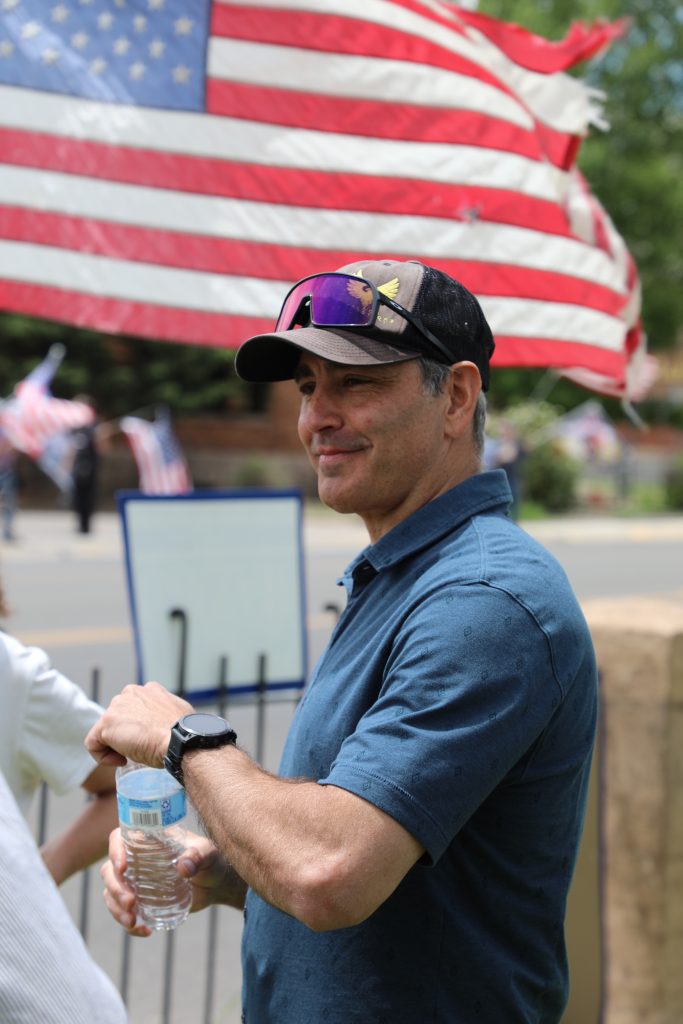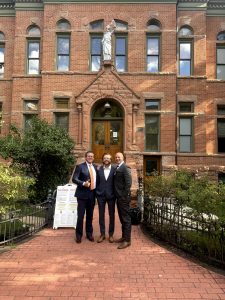Part 2: Kelloff discusses healthcare, foreign policy
The Old Snowmass Congressional candidate prepares for next 15 months of campaign

Courtesy photo
Editor’s note: The first part of this two-part series on Alex Kelloff’s running points was published in the Thursday edition of The Aspen Times.
Alex Kelloff has a long road ahead.
Preparing for the November 2026 election for Colorado’s 3rd Congressional District — the largest district in the state with nearly a two-to-one rural-to-urban population — Kelloff strives to be the first Democrat elected since 2011. The Old Snowmass U.S. House of Representatives candidate and his team have termed the district the “improbable district.”
“Because it is so large, it is so diverse,” he told The Aspen Times on Tuesday.
But in seven weeks, he has raised $429,000 across the district. Along with an endorsement from John Salazar, the last Democrat to represent the district, he was endorsed by Rep. Elizabeth Valesco, D-Glenwood Springs, and Rep. Matthew Martinez, D-Monta Vista, who are majority co-whips in the Colorado House of Representatives.
Kelloff was also endorsed by Arnold Salazar, former board chair of Adams State University and a Colorado health care activist. This endorsement in particular supports one of Kelloff’s key points of focus as he continues his campaign: health care.
Health care
Trump’s early-July mega-bill, termed the “Big Beautiful Bill,” enacts restrictions and cuts on healthcare systems, disproportionately affecting rural communities, according to National Public Radio.
Kelloff condemned budget cuts to medicaid included in Trump’s bill. KFF, a media organization focused on health policy, estimated the bill will reduce the Medicaid funding by $911 billion over the next decade, with an estimated $12 billion loss — or 14% of Medicaid funding — in Colorado.
A businessman and “pillar of the community,” Kelloff’s grandfather helped build the Conejos County Hospital in La Jara in the 1960s.
“And that’s now one of the rural hospitals at risk of falling under in part from the cuts from the ‘Big Ugly Bill,'” Kelloff said, referring to Trump’s early July bill.
“Our district is disproportionately affected by these cuts because we disproportionately have people that are getting Medicaid, getting rural health by virtue of how big the district is,” he added, saying, “I would not vote for legislation that hurts my constituents.”
The bill also requires Medicaid recipients in 40 states, including Colorado, to file paperwork proving they are “working, volunteering, or attending school at least 80 hours a month,” according to NPR.
He said the actions taken by Republican lawmakers are a “smokescreen” because they know there are seldom enough jobs in rural areas for people in need of healthcare to meet a 20-hour-per-week work requirement.
“There literally aren’t jobs that can employ these people 20 hours a week,” he said. “I don’t think that anyone would be against getting rid of fraud, waste, and abuse where it exists, but it certainly doesn’t exist to the extent that the Republicans think that it does.”
Foreign policy
Kelloff emphasized the importance of maintaining good relationships with American allies.
“I think there is value in having friends and neighbors,” he said. “So this policy that this administration has pursued — to somehow treat our friends and allies the same way we treat our enemies — makes absolutely no sense to me.”
He condemned the Trump administration’s action to impose 10% tariffs on all countries. He also said the federal administration shouldn’t have cut funding for the United States Agency for International Development (USAID), which outlined a plan to cut nearly $60 billion in humanitarian aid and development assistance from foreign countries.
Kelloff condemned Trump’s cuts to Voice of America, a federally-funded international broadcasting organization that provides multi-lingual news around the world, which experts estimated would leave the organization with a staff of 81, down from around 1,000.
“These discretionary spends for these programs are well under 1% of the total budget,” he said. “Having said that, we need to ensure a strong national defense, and that probably does mean investing in our U.S. defense.”
He said part of the way the government can do that in a smart, cost-effective way is by supporting American allies.
“I think our world is better off by engaging and spreading democracy and human rights throughout the world,” he said. “We should do that going forward.”
Skyler Stark-Ragsdale can be reached at 970-429-9152 or email him at sstark-ragsdale@aspentimes.com.
Trial dismissed, all charges dropped for former Aspen coach
Over 60 prospective jurors filed out of the Pitkin County Courthouse on Monday morning after former Aspen High School Assistant Basketball Coach Chris Woodring saw his trial dismissed and his charges dropped.










